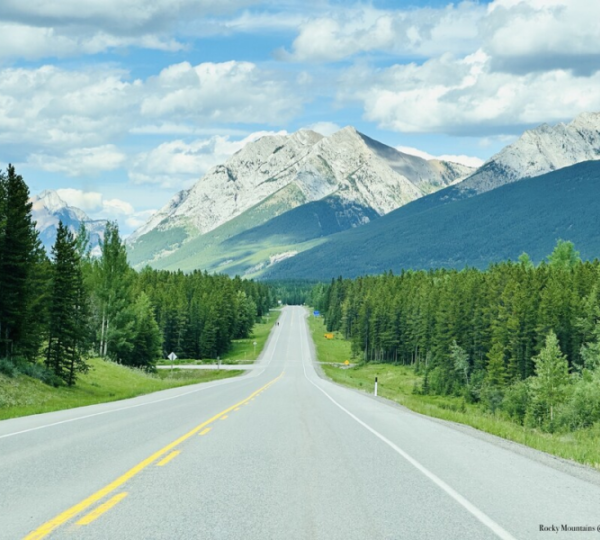Welcome, fellow adventurers and nature enthusiasts! We invite you to go on an eco-exploration trip with this complete guide. As we delve into the world of sustainable activities, we’ll uncover how to foster a deeper connection with nature while minimizing our impact on the planet we cherish. – The Eco-Explorer’s Handbook
Eco-exploration is more than just a buzzword; it’s a philosophy, a way of life. It’s about venturing into the great outdoors with a mindful approach, respecting the delicate balance of ecosystems and leaving behind only footprints of appreciation.
In today’s world, where environmental concerns are at the forefront, embracing sustainable practices is not only a choice but a responsibility. By choosing to explore nature responsibly, we become stewards of our planet, ensuring its beauty and resources endure for generations to come.
Let’s not forget the profound benefits eco-exploration offers us as individuals. Immersing ourselves in nature’s wonders has been shown to reduce stress, boost creativity, and enhance overall well-being. It’s a chance to recharge, reconnect, and find solace in the embrace of the natural world.
Ready to begin? Let’s dive into the heart of the Eco-Explorer’s Handbook and discover how to nurture a deeper connection with the world through sustainable activities. – The Eco-Explorer’s Handbook

Sustainable Activities for the Eco-Explorer
The heart of eco-exploration lies in choosing activities that minimize our impact while maximizing our connection to the natural world. Let’s explore some fantastic options:
Hiking and Backpacking
There’s something truly magical about setting foot on a winding trail, the crunch of leaves beneath your boots, and the smell of fresh earth in the air. Hiking and backpacking offer a chance to immerse yourself in diverse landscapes, from lush forests to towering mountains.
Tips for Eco-Friendly Hiking:- The Eco-Explorer’s Handbook
- Gear Up Responsibly: Opt for durable, eco-friendly gear made from recycled or sustainable materials. Consider renting gear if you don’t hike frequently to reduce consumption.
- Pack Light and Right: Bring only essentials to minimize your load and reduce waste. Choose reusable food containers and water bottles, and pack out all trash.
- Leave No Trace: Follow the seven Leave No Trace principles to minimize your impact on trails and campsites. This includes staying on designated paths, packing out all waste, and leaving natural objects undisturbed.
- Choose Established Trails: Stick to well-maintained trails to avoid trampling delicate vegetation and disturbing wildlife habitats.
Wildlife Watching and Birdwatching
Observing animals in their natural habitat is a humbling and awe-inspiring experience. Whether you’re tracking elusive mammals or marveling at the vibrant plumage of birds, wildlife watching connects us to the intricate web of life on Earth.
Ethical Wildlife Watching Tips:- The Eco-Explorer’s Handbook
- Maintain a Respectful Distance: Use binoculars or a spotting scope to observe animals from afar, avoiding any actions that might startle or stress them.
- Support Ethical Tourism: Choose tour operators committed to responsible wildlife viewing practices. Look for certifications or affiliations with conservation organizations.
- Become a Citizen Scientist: Participate in citizen science projects by reporting your wildlife sightings. This valuable data helps researchers monitor populations and track changes in ecosystems.
Sustainable Camping
Sleeping under a canopy of stars, listening to the crackling of a campfire, and waking up to the sounds of nature – camping offers an unparalleled escape into the wilderness. Let’s make it a sustainable one.
Eco-Friendly Camping Tips:- The Eco-Explorer’s Handbook
- Campground Selection: Choose established campsites with minimal impact on the environment. Do not camp on weak plants or near bodies of water.
- Gear Up Green: Invest in eco-friendly camping gear, such as solar chargers, reusable cookware, and biodegradable soap.
- Leave No Trace: Pack out all trash, including food scraps and toilet paper. Use established fire rings if campfires are permitted, and follow local regulations.
Kayaking, Canoeing, and Paddleboarding
The gentle rhythm of paddling, the cool water splashing against your vessel, and the stunning views from the waterline – kayaking, canoeing, and paddleboarding offer a unique perspective on aquatic ecosystems.
Responsible Paddling Practices:- The Eco-Explorer’s Handbook
- Choose Your Waterway Wisely: Opt for waterways with minimal boat traffic and low environmental impact. Before you go, find out about the rules and limits.
- Respect Wildlife: Avoid disturbing nesting birds or other sensitive wildlife. Stay away from them and watch quietly.
- Practice Clean Paddling: Secure all gear to prevent littering. Pack out any trash you find along the way, and avoid using harmful chemicals like sunscreen or insect repellent that can wash off into the water.
Nature Photography
Capturing the essence of nature through photography allows us to share its beauty and inspire others to protect it. Ethical nature photography involves respecting both the subjects and the environment.
Ethical Nature Photography Tips:- The Eco-Explorer’s Handbook
- Prioritize Wildlife Well-being: Never disturb animals or manipulate their behavior for the sake of a photo. Let them go about their natural activities.
- Use Natural Light: Avoid using flash photography, which can startle or disorient wildlife, especially at night.
- Stay on Designated Paths: Avoid trampling vegetation or disturbing sensitive habitats to get the perfect shot.
- Use Your Photos for Good: Share your images to raise awareness for conservation issues and inspire others to appreciate the natural world.
The Eco-Explorer’s Mindset
Responsible Travel
Eco-exploration extends beyond specific activities; it’s a mindset that guides our choices and actions when we travel. Responsible travel involves minimizing our environmental impact, supporting local communities, and respecting the cultural heritage of our destinations.

Responsible Travel Tips:- The Eco-Explorer’s Handbook
- Choose Eco-Conscious Accommodations: Look for hotels, lodges, or campsites that prioritize sustainable practices, such as energy conservation, water recycling, and local sourcing of food.
- Support Local Economies: Dine at local restaurants, purchase souvenirs from local artisans, and participate in activities offered by local guides.
- Learn About Your Destination: Research the cultural and ecological significance of the places you visit. Engage with locals to gain a deeper understanding and appreciation for their traditions and customs.
- Offset Your Carbon Footprint: Consider carbon offset programs to mitigate the environmental impact of your travel.
Minimizing Waste
One of the most impactful ways to practice eco-exploration is by minimizing our waste. By reducing our consumption and making conscious choices, we can significantly lessen our environmental footprint.
Waste Reduction Tips:- The Eco-Explorer’s Handbook
- Pack Reusable Essentials: Bring your own reusable water bottle, utensils, food containers, and shopping bags. Refuse single-use plastics whenever possible.
- Choose Package-Free Options: Shop at bulk stores or farmers markets where you can buy goods without excessive packaging.
- Compost Food Scraps: If camping, consider composting food scraps to reduce waste and return nutrients to the soil.
- Recycle Responsibly: Familiarize yourself with local recycling guidelines and dispose of waste properly.
Leave No Trace
The Leave No Trace principles are a set of guidelines that help us minimize our impact on the environment while enjoying the outdoors. By following these principles, we ensure that future generations can experience the same pristine wilderness that we do.
The Seven Leave No Trace Principles:
- Plan Ahead and Prepare:Research your destination, pack appropriately, and travel in small groups to minimize impact.
- Travel and Camp on Durable Surfaces:Stick to established trails and campsites to avoid damaging vegetation and soil.
- Dispose of Waste Properly:Pack out all trash, including food scraps and toilet paper. If campfires are allowed, use fire rings that have already been set up.
- Leave What You Find:Avoid picking flowers, collecting rocks, or disturbing natural objects. Leave nature as you found it.
- Minimize Campfire Impacts:Use established fire rings if fires are allowed. Keep fires small and manageable, and burn only dead wood.
- Respect Wildlife:Observe animals from a distance and avoid disturbing their natural behavior. Keep food safely stored so that animals don’t come to your spot.
- Be Considerate of Other Visitors:Keep noise levels down, yield to others on the trail, and respect the experience of fellow outdoor enthusiasts.
Educating Others
Sharing our passion for eco-exploration and educating others is a powerful way to create a ripple effect of positive change. By inspiring others to adopt sustainable practices, we can collectively make a significant difference.
Spreading the Eco-Explorer Spirit:- The Eco-Explorer’s Handbook
- Share Your Experiences: Talk to friends and family about your eco-adventures. Share photos and stories on social media, highlighting the importance of sustainable travel and outdoor recreation.
- Organize Group Activities: Plan group hikes, camping trips, or other outdoor activities with a focus on sustainability.
- Volunteer for Conservation Efforts: Donate your time and energy to organizations working to protect natural areas and wildlife. Participate in local cleanups or restoration projects.
- Support Environmental Causes: Advocate for policies that protect the environment and promote sustainable practices.

Conclusion: The Eco-Explorer’s Journey Continues – The Eco-Explorer’s Handbook
The Eco-Explorer’s Journey Continues
As we conclude our exploration of the Eco-Explorer’s Handbook, let’s remember that this is not just a guide, but an invitation to embark on a lifelong journey of discovery, connection, and responsibility.
By choosing sustainable activities, we become guardians of the natural world, preserving its wonders for future generations to enjoy. We deepen our understanding and appreciation of the delicate ecosystems that support us, and we foster a sense of awe and gratitude for the planet we call home.
As you venture forth on your eco-adventures, whether it’s hiking through a pristine forest, paddling along a serene river, or simply stargazing in your backyard, carry with you the principles of eco-exploration:
- Respect: Treat nature with reverence and tread lightly upon the Earth.
- Responsibility: Minimize your impact and leave no trace of your presence.
- Connection: Open your heart and mind to the transformative power of nature.
- Education: Share your knowledge and passion for eco-exploration with others.
- Action: Take steps, both big and small, to protect the environment and promote sustainability.
Remember, the Eco-Explorer’s journey is not about perfection; it’s about progress. It’s about making conscious choices, learning from our experiences, and continuously striving to become better stewards of our planet.
So, lace up your hiking boots, grab your binoculars, and set out on your next adventure. Let the Eco-Explorer’s Handbook be your guide, and may your journey be filled with wonder, discovery, and a deep connection to the natural world.
The world awaits your exploration. Explore responsibly, and let your adventures inspire a greener, healthier planet.




